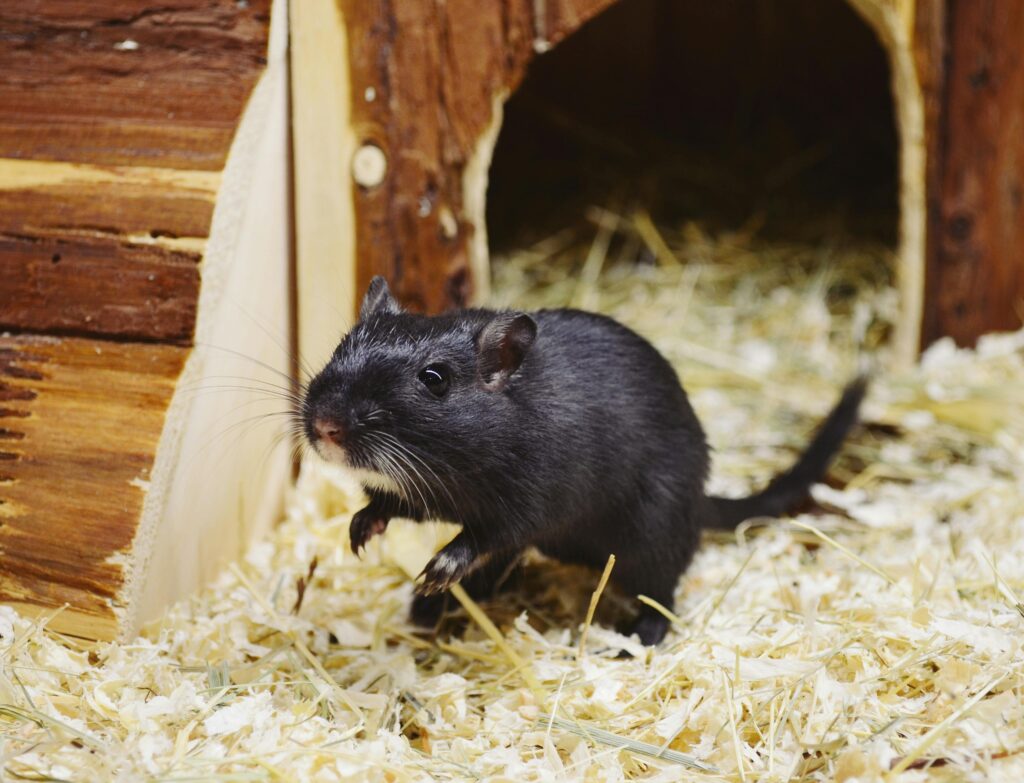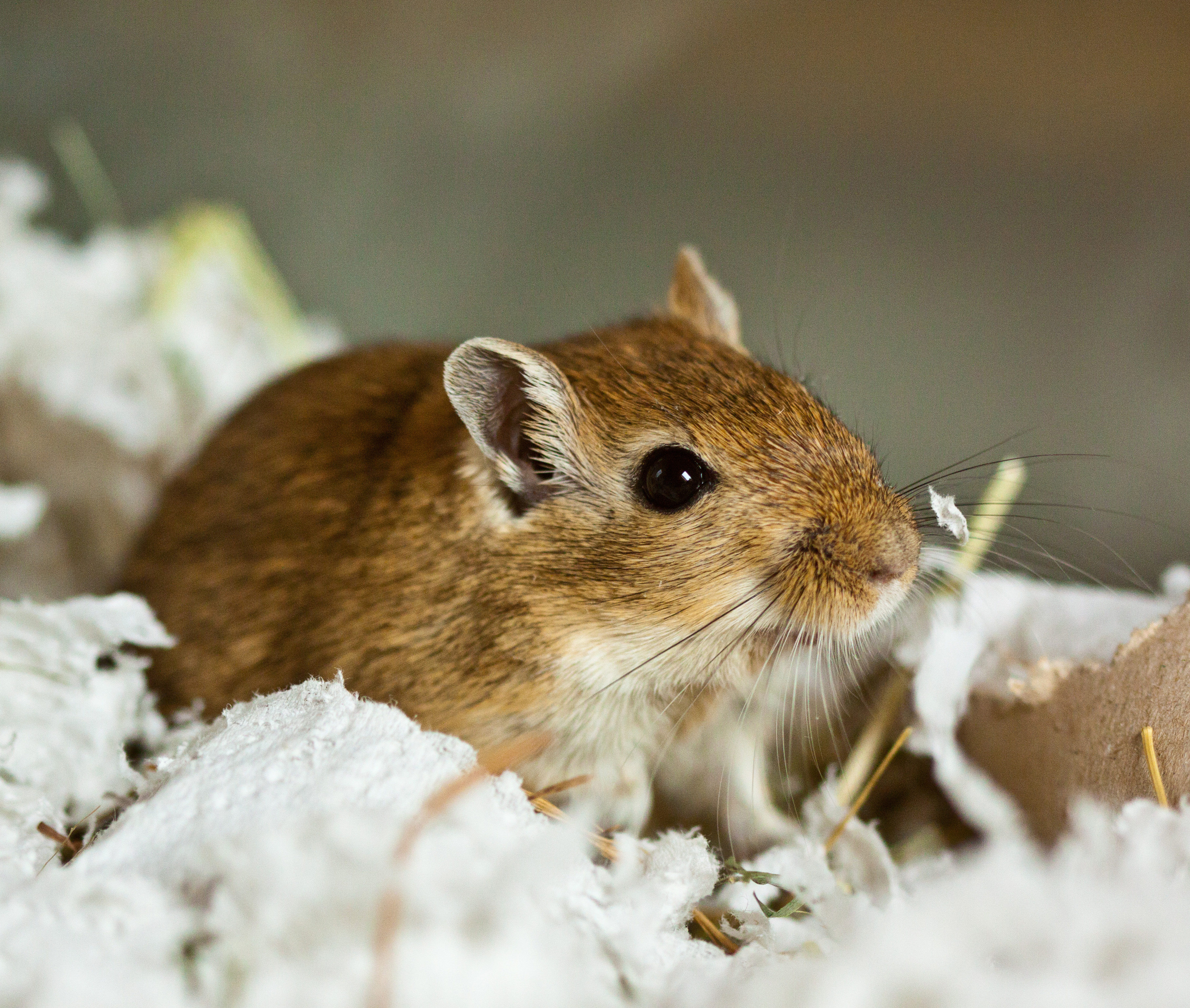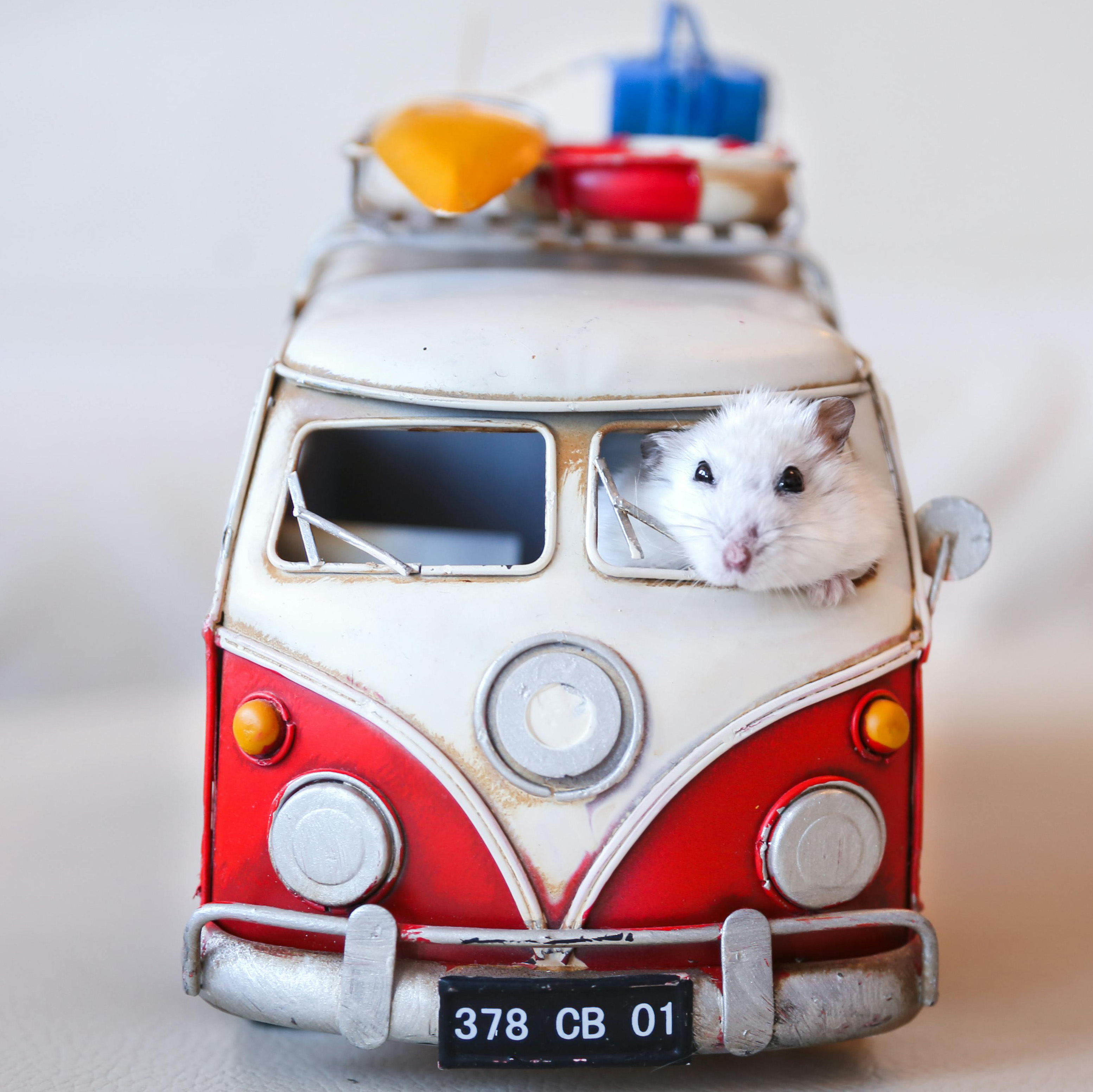
Written by: Bren Parker
Gerbils are delightful, energetic pocket pets known for their playful nature and sociability. These little guys are a subfamily of the of the rodent known as gerbillnae. Most common pet gerbils today are the Mongolian gerbil and they come in a range of colors including black, white, and gold. With proper care, these small rodents can live up to three to five years, with some even making it longer. Here’s an overview of to ensure your new pet thrives.

Housing
First order of business is to set up a suitable habitat. A wire cage with a solid bottom is acceptable but most experts recommend a glass aquarium as gerbils tend to chew and climb the bars of wire cages. A secure mesh top is needed, as it prevents escape and provides adequate ventilation. Aim for a minimum size of 10 gallons for one or 20 gallons for two gerbils. Line the bottom with a thick layer of bedding, such as aspen shavings or dye-free, scent-free, paper-based bedding, which is safe and absorbent. Avoid cedar and pine shavings, as they can be harmful to gerbils.
Diet
A balanced diet is vital for any pet’s health. For your new gerbil, seek a high-quality commercial gerbil pellet food which should form the core of their diet. Treats like seeds and nuts can be given sparingly, as they are high in fat. You local pet store will have the appropriate stock of these. Always provide fresh water in a sipper bottle. Portion sizes should be described on food packaging and leave food for the gerbil to eat all day. Clean the water bottle and food bowl daily.
Socialization and Handling
Gerbils are social animals and enjoy living in pairs or small groups. However, it is best to get both gerbils at the same time. If you have a lone gerbil, bringing in a new mate could create territorial issues and cause fighting. Make sure any pair is the same sex so you don’t end up with a litter.
Gerbils enjoy interaction with you so start by gently holding your gerbil in your palm, allowing it to explore its surroundings. Gradually increase the time you spend with them, always being patient and calm. Avoid sudden movements, as these can frighten them and they can bite when they feel threatened.
Enrichment

Mental and physical stimulation is crucial for all pets including gerbils. Provide tunnels, chew toys, and climbing structures to encourage exploration and play. Wood is a preferable choice and it is less destructible than plastic. Cardboard tubes, wooden blocks, and exercise wheels are excellent additions to their environment. Unscented toilet paper tubes are popular (and free) with gerbils. Exercise balls are great and allow the gerbil to safely roll about other parts of the house. Rotate toys regularly to maintain their interest and prevent boredom.
Health Care
Regular health checks are important and yes, many veterinarians treat gerbils. They are exotic vets. Look for signs of illness, such as lethargy, difficulty breathing, or changes in eating habits. Gerbils can be prone to certain health issues like dental problems or tumors, so consult a veterinarian experienced with exotic or small animals if you suspect a problem.
Cleaning and Maintenance
Maintain a clean habitat by removing soiled bedding and uneaten food daily. Perform a full cage clean every couple of weeks, replacing bedding and washing the enclosure with a pet-safe cleaner. This will help prevent odors and keep your gerbils healthy.
In summary, with proper care, housing, diet, socialization, and stimulation, your gerbil can lead a happy, healthy life. Both of you will enjoy the unique companionship that these cute little guys will bring to your life.